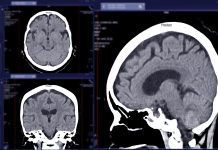Dr Eugene Durenard, CEO of Hyperbolic Holdings GmbH discusses promising emerging technologies in the field of early detection and prevention of major chronic diseases
In our article for the January 2021 edition of Open Access Government, we discussed several inefficiencies in the global healthcare innovation landscape that were accentuated by the COVID crisis. Here, we point out technologies that should help address those inefficiencies and how they could potentially yield a much bigger benefit for the conduct of large preventive trials. We also give examples of some exciting technologies in early disease discovery and preventive interventions that Hyperbolic is involved with.
Harmonising approvals
In January, we highlighted that a major systemic improvement is needed in the harmonisation of regulatory approvals of drugs and devices between jurisdictions. This lack of harmonisation has direct consequences on increased time to market and pricing, and translates into longer waiting times and higher costs to patients.
Putting in place such regulatory fungibility will directly benefit the population and increase incentives for cross-border sourcing of innovation. It will also help Biotech and MedTech companies by focusing their resources on perfecting their innovations rather than on repeating trials in different countries.
Hyperbolic has initiated a project to address this issue by assembling a group of experts from the fields of regulation, policy-making strategy, industry, data integrity and health innovation. We expect to put in place some workable recommendations and pilots in the months to come.
We think that the main technological input, needed to bring the basis of trust for data and process reproducibility is a distributed ledger technology able to tag and store unstructured data coming from the patient, lab and treatment process. Such technologies exist already and are ripe for scalable deployment.
We are excited about this initiative because we expect the associated progress to additionally benefit another crucial area of public health –— prevention.
From reaction to proaction
Most key opinion leaders agree that catching diseases early and implementing interventions to slow down disease progress is key to better survival and a major factor in reducing the cost burden on health systems. Prevention is mediated by behaviour changes and is also dependent on regularly measuring the onset and severity of diseases.
While a large bulk of innovation is still focused on the detection and treatment of existing diseases, Hyperbolic is involved in emerging technologies expected to play significant roles in the scaling-up of preventive interventions. We believe that the adoption of such technologies will be encouraged by health systems that find themselves in an even more stressful situation than before the COVID crisis.
Technology in preventative trials
Preventive trials are hard to implement. A major hurdle is the difficulty in recruiting enough participants and systematically collecting, for long periods, scientific evidence on outcomes.
Hyperbolic is working with a client that optimises patient engagement and retention thanks to innovative personalisation and data collection technology. This enables preventative studies to be recruited faster and conducted with minimal attrition. A major G7 health system has just started using this approach for a preventative trial in women’s health.
The confluence of the distributed ledger technology with personalised patient engagement and data-collection technology, is, in Hyperbolic’s opinion, the winning solution for conducting substantial preventative trials.
If any systemic improvements were to emerge from the COVID hiatus, this one would be truly transformative for the future of global health.
Some innovations in prevention
Hyperbolic is involved with several innovations that we expect to become highly significant for the prevention of some non-communicable diseases.
Cardiovascular
Cardiovascular diseases are recognised to be the largest cause of death worldwide. Several preventive methodologies and recommendations have been developed such as healthy eating, exercise and cessation of smoking. People are generally stratified into risk groups determined from past population-wide outcomes. Such risk classification, however, does not indicate the actual severity of the person’s disease, nor does it suggest an actual treatment plan to follow.
A crucial innovation is to objectively measure the severity of CVD diseases for asymptomatic people in ways that lead to concrete preventative interventions and treatments.
Hyperbolic is involved with a company that developed a CVD severity screening methodology based on a major multi-year trial. Its attractive health economics make the screening process affordable and scalable. We are working to expand the market reach of this methodology with select clinical partners.
Metabolic
Diabetes is another major chronic disease with estimates above 400 million afflicted people worldwide, plus a vast amount of pre-diabetics. Diabetes leads to a variety of co-morbidities, several of cardiovascular nature.
Diets have become richer in added sugars at the expense of fibres. Endocrinologists agree that sugar over-consumption leads to an increased risk of diabetes. Nutrition scientists agree on the importance of dietary fibres for gut microbiome health, satiety, and reduction of obesity risk, all reducing diabetes risk.
One of Hyperbolic’s clients is a super-expanding natural fibre-based supplement that absorbs sugars from the meal and transports them to feed the gut microbiome. We are working with this very strong, scalable candidate for diabetes prevention in facilitating clinical trials and strategic distribution partnerships.
Cancer
Cancer causes one of the largest cost burdens on the global economy, estimated at around $1 trillion per year of lost output.
The ability of cancers to re-programme their phenotypes leads to the problem of evasion from treatments. This ability increases with cancer maturity; hence specialists agree that detecting and treating cancers early is the only viable long-term solution.
A recent deeper understanding of interplays between cancer and the immune system is opening a new paradigm for screening and therapy. Behind it stands a fundamentally new immune-signatures screening technology and therapeutic vaccines developed by one of Hyperbolic’s clients.
The key aspect of this technology is its ability to screen cancer early, and potentially treat it, both at a reasonable cost.
This approach is also applicable to canine cancers and our client is conducting the largest veterinary oncology trial in the world. Hyperbolic is working with this platform technology to build strategic partnerships for its various applications.
Conclusion
We are passionate about engaging with opportunities in this exciting and dynamic innovation landscape.
We believe that some lessons should be extracted from the COVID crisis to create a more efficient regulatory environment.
We anticipate that technologies enabling early disease screening and prevention will continue to gain importance.
Our team at Hyperbolic Holdings looks forward to hearing about your strategic and business needs concerning MedTech and Biotech innovation. We help innovators with business strategy and work with strategic investors on target sourcing, due diligence and deal-making.
Please note: This is a commercial profile








